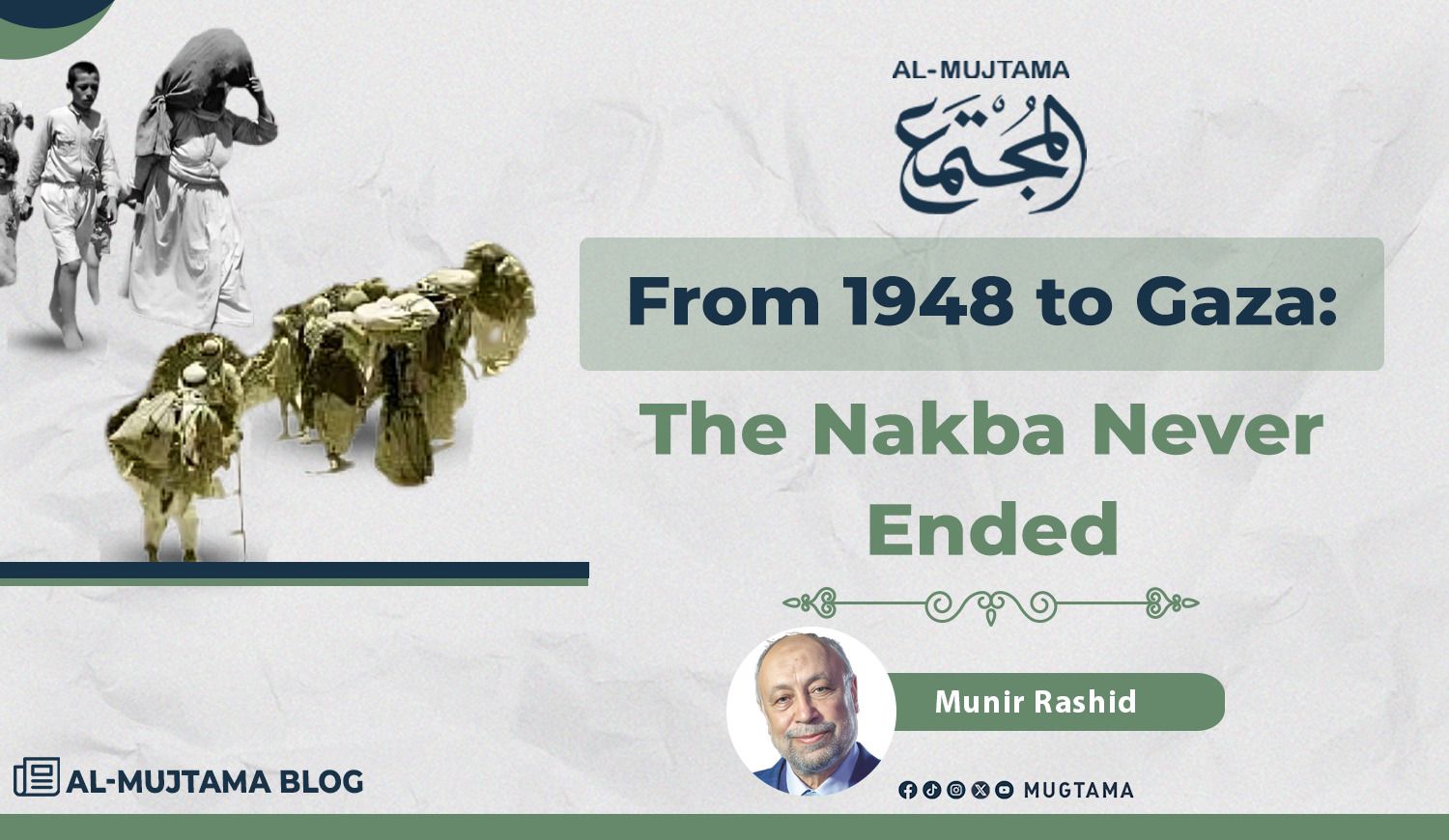Marking the Nakba and the Battle of Existence

The issuance of the Balfour Declaration
in 1917 laid the groundwork for the Nakba (Catastrophe) from the moment
it was announced. It promised the establishment of a national homeland for the
Jews in Palestine, followed by the British Mandate over the land, which enabled
the Zionist movement to seize vast areas, and encouraged Zionist institutions
to organize and expand their control over all aspects of life.
Britain entered Palestine with a firm
commitment to implementing the Balfour Declaration, actively encouraging Jewish
immigration, supplying them with various weapons, and training them to use
them. At the same time, it imposed all forms of oppression, brutality, and
persecution against the Palestinians, restricting their freedoms, chasing and
executing their activists who defended their homeland.
The term Nakba is a modern one,
referring to the humanitarian tragedy of displacing hundreds of thousands of
Palestinians, and the destruction of their political, economic, and social
structures in 1948. During that year, Zionist gangs committed over 70
massacres, killing tens of thousands of Palestinians, and forcibly expelling
the population from their homeland. Zionist propaganda played a key role in
scaring people into fleeing to protect their families, and then prevented their
return, leading to their dispersal across the globe.
It is certain that the British Mandate was
the covert and indirect face of the occupation. On the midnight of May 14,
1948, the British government announced the end of its presence in Palestine.
Just hours before the mandate officially ended, the Jewish Council in Tel
Aviv declared the establishment of a Jewish state in Palestine—without even
defining the borders of this state.
It is clear that the Zionist strategy to
expel Palestinians from their homes and lands was not spontaneous, but part of
a long-planned, well-coordinated operation—facilitated by the British
government. Later events confirmed that this entity is a settler-colonial
regime, built on forced displacement, destruction of towns and villages, and
changing names and landmarks, affirming the nature of its mindset and its
aggressive ideology.
The 77th anniversary of the Nakba
arrives amid an ongoing genocide in Gaza, forced displacement of its population
and those in the West Bank, and the formalization of Israel’s identity as a
"Jewish state" in its Knesset. This all proves that the enemy does
not accept any other presence on a land that was never originally theirs. It is
a criminal settler-colonial project, seeing its existence as the only one that
matters, while portraying the rightful owners of the land as void, illusion, or
non-existent. And if their existence is acknowledged, it is only for the
occupier's benefit, and within its framework, instructions, and control—as seen
in the catastrophe of the Oslo Accords.
The Palestinians did not surrender to this
imposed reality. From the days of the British Mandate, they showed heroic
resistance despite British and Zionist brutality. Their struggle continued
beyond the Nakba, and they still cling to their right of return and
self-determination. They did not become passive refugees relying on aid and
assistance, but instead contributed—and still contribute—to the development and
prosperity of the lands they settled in. They built their identity around
resistance, passing it down to new generations committed to return.
The Palestinians who were expelled from
their homes took their house keys with them, believing firmly that they would
return one day. These keys are still inherited by generation after generation,
symbolizing their stolen homes and reinforcing their unwavering right to
return.
The legendary steadfastness of Gaza—its
land, its people, and its resistance—reaffirms what has always been true: that
Palestine, from the river to the sea, is indivisible. The occupier is temporary
and must return to where it came from. The right of return is non-negotiable.
-------------------------------------------------------------
Author: Munir Rashid










